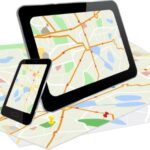February 20, 2017 – Nine times in the past I have written postings (type “blockchain” in the search window and you can read all of the blog entries) where I have described the potential of blockchain technology to become the international standard for almost any type of transaction we can conceive. It appears that there is common agreement in the finance sector that the technology represents a new “ecosystem” for business. Jeremy Wilson, Vice Chairman of Barclays Corporate Banking describes blockchain as “a new operating system for the planet.”
Wilson in a recent panel discussion was asked about the future of blockchain. His response was that the banks see the technology as a “significant opportunity.” Those fintech startups that today are challenging traditional banks have adopted blockchain as a clearing house for financial transactions. But Wilson believes that the technology’s best future is not where today, things are working well but “where things are presenting big challenges and need resolution.” Trades involving currency exchange, for example, can best be handled using blockchain technology.
The banks today are using blockchain for trade finance, particularly in complicated supply chain transactions. Blockchain is seen as a means to streamline the entire process within integrated supply chains that cross international boundaries and deal in multi-country currencies.
Wilson, a member of the Global Futures Council on Blockchain for the World Economic Forum, sees the technology as profoundly innovative. Just how so?
Blockchain first emerged with the cryptocurrency Bitcoin. It was an excellent technology for holding bitcoins and dealing with transactions that didn’t require a bank. But now blockchain can do far more than manage remittance of digital coin. Here are 12 current uses of blockchain. Soon there will be many more.
- It can be used to send money anywhere on the planet. Today you can get a BitPay card and transact in almost any currency securely using blockchain to track exchange and payments.
- You can track digital assets that are not money. For example, frequent flyer miles, property titles, stocks, bonds. An open source distributed ledger, Openchain, can be used to submit digitally signed transactions.
- You can create blockchain IDs that will be accepted across the Internet as valid digital signatures. Blockchain applications such as Keybase provide a secure environment for online IDs.
- Beyond financial transactions, blockchain is being considered for electronic voting (Ukraine is about to give it a try). With secure, digital signature applications such as E-vox, democracies can become more transparent to their citizens, get them involved without concerns about potential voter fraud and securing one vote per citizen.
- Patient records can be secured using blockchain, creating comprehensive, secure online medical records showing a full history, treatments, all visual records of x-rays, MRIs, CATscans, and more, plus secure payment transactions.
- The music industry can use blockchain applications such as UjoMusic to manage streaming of artist recordings with all payments and income generated supervised by a single ledger ensuring the copyright of artistic works is not violated.
- The clothing and fashion accessories industry sees blockchain as a means to provide traceable identity to eliminate knockoffs. The Textile & Clothing Business Labs, a European Union project, is creating just such a TCBL application.
- Self-driving cars may soon use blockchain as a means to find customers and charge them for on demand services without requiring a credit card.
- Software developers can use labour from anywhere on the planet where there is an Internet connection and by using blockchain they can manage payments in local currency without using a bank and having to pay money exchange costs.
- Even crowdfunding sites like Kickstarter and Indiegogo may go the way of the dinosaurs as OpenLedger becomes a means by which entrepreneurs can find investors without having to pay transaction and administration fees which can take a significant bite out of early start-up investment.
- For homeowners who have invested in solar energy, blockchain provides a much simpler way to manage the transfer of excess energy to neighbouring homes using Electronic currency tokens. Utilities are also looking at blockchain for tracking energy assets.
- Carboncoin is a blockchain managed digital currency focused on reforestation. And Energy Blockchain Labs is an IBM company in China that is using blockchain to manage carbon emissions and trading of credits.












